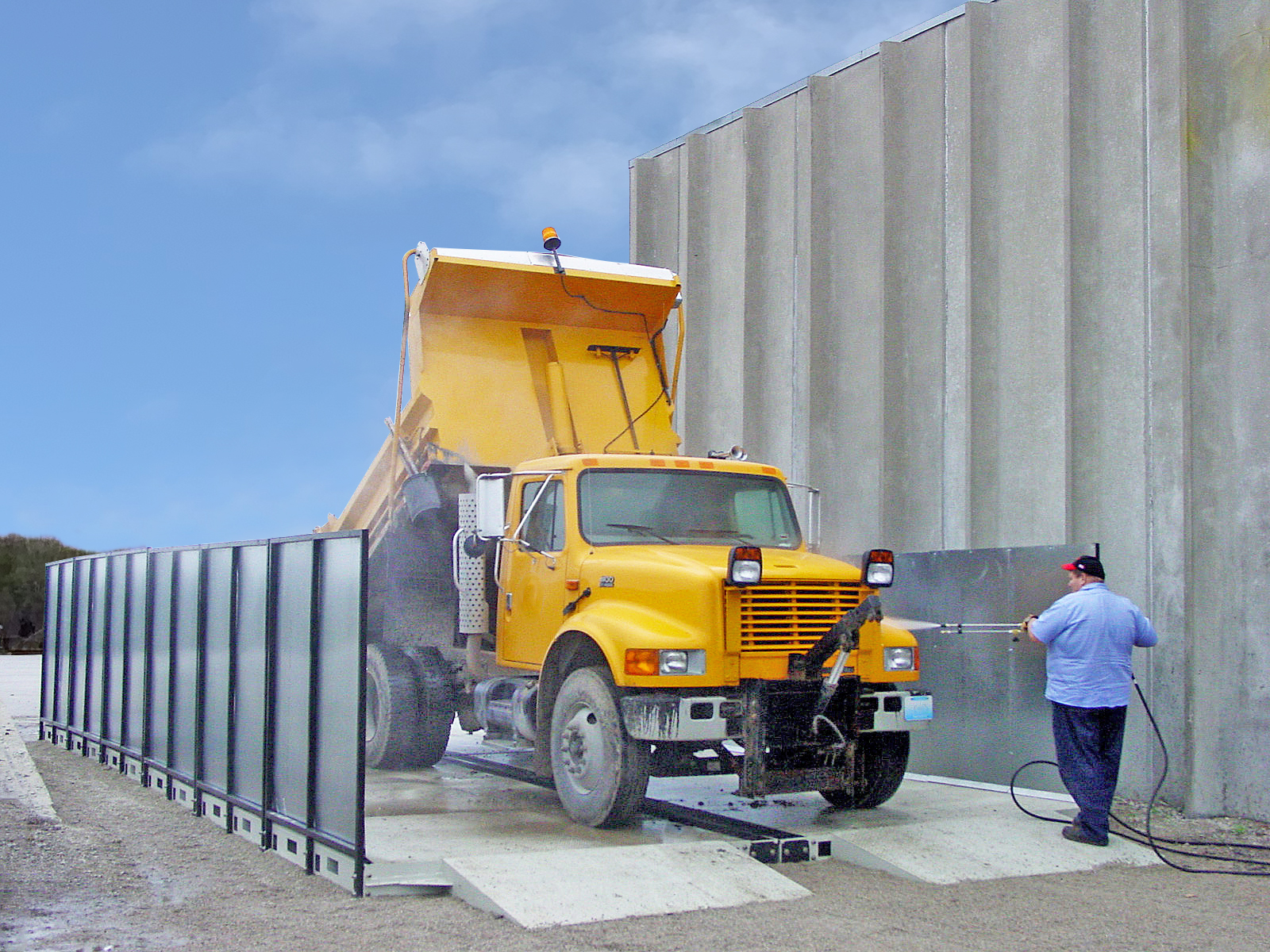Riveer Wash Racks Solve the Compliance Issue
South Haven, MI – Municipal Public Works operations throughout the United States are facing a growing number of regulations for how they wash their equipment. Gone are the days when a city dump truck or earth mover can be hosed down in the maintenance lot. Virtually every city and state has laid down the law for the safe disposal of wastewater from washing and degreasing operations.
Vehicle washing requires huge quantities of fresh water to cleanse them thoroughly from top to bottom. A literature survey indicates that about 400-600 L of water is used to wash a truck or bulldozer and about 150 L of water is used to wash a car. Moreover, wastewater discharge will escalate the water pollution as it enters through the stormwater runoff untreated into the storm drains. The effluent comprises of various harmful chemicals and plenty of water when it enters the storm drains and this is very dangerous for the environment as it enters in our creeks, rivers, and other aquatic bodies untreated. For instance, construction companies, municipal public works, rental companies, and manufacturers washing or degreasing parts and equipment expend precious water while the wastewater or effluent is often discharged into the stormwater basin which eventually becomes part of water bodies and poses serious negative environmental impacts on the whole aquatic system.
For nearly 40 years, Riveer has specialized in designing, manufacturing, and installing site-specific systems for safer washing and disposal of water used on municipal vehicles and equipment. Riveer Wash Racks for Municipal Wash Water Management effectively contains water from daily cleaning and maintenance activities:
- Low profile designs feature easy access ramps for forklifts and other low-clearance vehicles
- Plug and play design makes installation fast and straightforward; no infrastructure or permitting is required
- The solids conveyor separates mud, clay, and other solids from the wash
- Standard walls in 6 and 8 feet; lights, fans, hose reels, roofs, and custom designs available
- Grit impregnated diamond tread deck plate
- Drive-through or drive-in designs, in any length and width, can be custom engineered to meet your requirements
- Optional undercarriage wash is positioned for optimal performance
Recycling wash water cuts water use drastically and eliminates the possibility of running afoul of regulations, as a closed loop recycling filtration system ensures an environmentally compliant organization.
Above-grade racks offer convenient bolt-together installation that doesn’t require a building or site permit. Racks can be used as a short-term solution or as a long-term wash facility. Racks can also be automated with conveyors to transfer solids to hoppers for easier disposal.
Racks can also be engineered with undercarriage rinse arrays for easily and effectively cleaning the bottoms of salt trucks, street sweepers, movers, vans, and other vehicles and equipment.
The company has recently published an eBook for tips on what to look for when purchasing your first wash rack. It’s available here.
Learn more about Riveer wash systems for Municipal Public Works at https://riveer.com/municipal-wash-racks/

